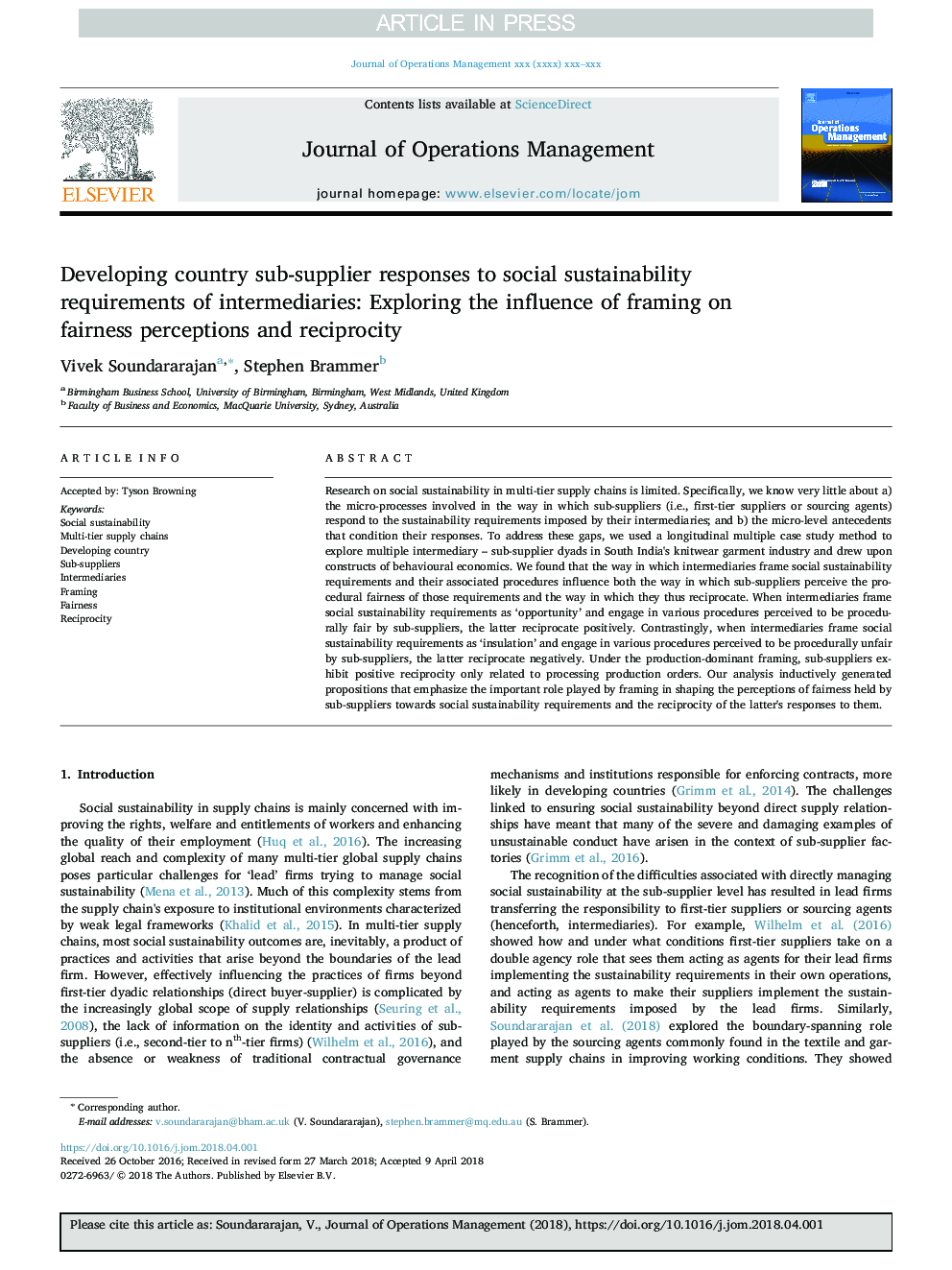| Article ID | Journal | Published Year | Pages | File Type |
|---|---|---|---|---|
| 7436166 | Journal of Operations Management | 2018 | 17 Pages |
Abstract
Research on social sustainability in multi-tier supply chains is limited. Specifically, we know very little about a) the micro-processes involved in the way in which sub-suppliers (i.e., first-tier suppliers or sourcing agents) respond to the sustainability requirements imposed by their intermediaries; and b) the micro-level antecedents that condition their responses. To address these gaps, we used a longitudinal multiple case study method to explore multiple intermediary - sub-supplier dyads in South India's knitwear garment industry and drew upon constructs of behavioural economics. We found that the way in which intermediaries frame social sustainability requirements and their associated procedures influence both the way in which sub-suppliers perceive the procedural fairness of those requirements and the way in which they thus reciprocate. When intermediaries frame social sustainability requirements as 'opportunity' and engage in various procedures perceived to be procedurally fair by sub-suppliers, the latter reciprocate positively. Contrastingly, when intermediaries frame social sustainability requirements as 'insulation' and engage in various procedures perceived to be procedurally unfair by sub-suppliers, the latter reciprocate negatively. Under the production-dominant framing, sub-suppliers exhibit positive reciprocity only related to processing production orders. Our analysis inductively generated propositions that emphasize the important role played by framing in shaping the perceptions of fairness held by sub-suppliers towards social sustainability requirements and the reciprocity of the latter's responses to them.
Keywords
Related Topics
Physical Sciences and Engineering
Engineering
Industrial and Manufacturing Engineering
Authors
Vivek Soundararajan, Stephen Brammer,
